North Korea: A More Imminent Threat Than Ever?
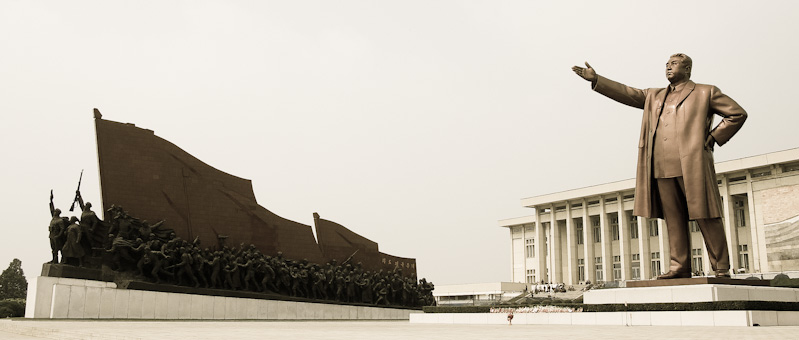 https://flic.kr/p/9rikvo
https://flic.kr/p/9rikvo
North Korea’s status as a serious threat has always been debatable. Though precautions have been taken against the possibly hostile nation, the power of their nuclear and ballistics arsenal have continuously shown nothing of note. Despite this, the nation has not shown signs of slowing down their weapons development, especially with their goal of developing intercontinental ballistic missiles (ICBMs) in order to gain more power over other nations. Recently, tensions between North and South Korea have escalated, due in part to the increasing presence of the USA in the region
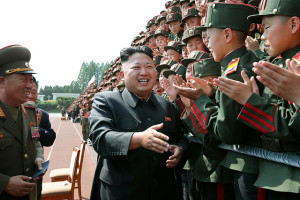
North Korean leader Kim Jong-un has recently been a rising concern in Washington, where White House officials called an unusual briefing with the US Senate regarding the nation. With these meetings and the dispatching of an aircraft carrier to the Korean Peninsula, one can see how seriously the US is taking North Korea’s growing arsenal. President Trump’s predecessor employed a time of “strategic patience,” but it did not work under the Obama administration. It seems that Kim Jong-un is not willing to give up the nation’s nuclear weapons and development program in order to negotiate with other countries, and Beijing was incapable of pressuring them to do so as well. While the US attempts to remain patient with North Korea, President Trump has shown a stronger intolerance for uncooperativeness. Vice President Pence warned not to test the USA’s resolve during his visit to South Korea. With this, he declared that the era of strategic patience was over.
The world has been dealing with tensions revolving around North Korea since the end of the Second World War. With recent instability in the region, does this mean the threat is more imminent than ever?
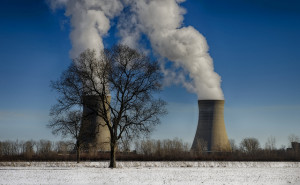
In truth, it is difficult to say. North Korea has been building its weapons arsenal throughout its existence, but they have not ultimately made an attempt to use them against another nation. Most have dismissed the display of military power as simply a bluff and a façade of absolute power. However, the fact remains that over time they have been developing stronger and more destructive weapons. The international community should be concerned for two main reasons: the actual possibility of a physical threat and the development of nuclear arms. The former is and always will be a valid reason for concern. If North Korea is successful in developing their ICBMs, their missile ranges will extend from Russia to the USA. Given the possibility of an attack, one can understand why the US is pushing for more pressure and sanctions on North Korea to push them to negotiate. The latter is simply a matter of upholding United Nations treaties and agreements. The Treaty on the Non-Proliferation of Nuclear Weapons remains in effect for a majority of nations, and any country that violates it should not be tolerated. If exceptions are made, then more countries can make the argument that they also need to start their nuclear arms development. Even if the goal is defence from other hostile nuclear nations, the possession or production of such arms should not be allowed. The objectives of the signed treaty are “to prevent the spread of nuclear weapons and weapons technology, to promote cooperation in the peaceful uses of nuclear energy, and to further the goal of achieving nuclear disarmament and general and complete disarmament.” While complete disarmament remains difficult to achieve, the main goal is to rid the world of nuclear arms that have historically proven their powers of destruction and horrifying, long-lasting after effects. North Korea’s nuclear arms development violates this treaty, and the international community should not tolerate such behaviour.
All these facts are not new news, so what has changed?
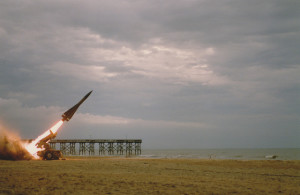
With new world leaders in play, attitudes and strategies towards North Korea have changed. President Trump seems more impatient than his predecessor with Kim Jong-un. He condemned the most recent failed missile test, and even went so far to say that it was a decision that disrespected China. As he attempts to forge closer ties with China, Trump will have to find ways to deal with North Korea that does not put them at odds with the PRC. President Xi will play a significant role in resolving this issue, and his attitudes towards North Korea will determine how it will be dealt with. The international community has been relying on Beijing to pressure North Korea into negotiating positions; however, this has been unsuccessful. Despite warnings, economic pressures, and negative rhetoric, Kim Jong-un continues his pursuit for nuclear armament.
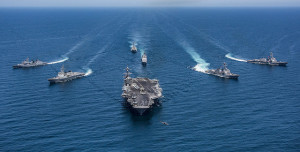
Perhaps physical pressures will work then? The US has placed aircraft carriers in the area, just in case North Korea decides to launch their missiles. While this may work, it risks inducing another war. Especially with how technology has advanced today, the effects could be the most destructive they have ever been. If Kim Jong-un does not back down from a physical threat, he can respond violently. When asked about the possibility of military action, Trump responded with “I mean, we’ll see,” alluding to the possibility of a physical conflict. North Korea has already started to demonize the US by accusing them of assassination plots against their leader. Whether this accusation is true or not, it shows that Kim Jong-un is not ready to negotiate on peaceful terms. If he can justify that the US and North Korea’s southern neighbour are enemies that need to be dealt with, then he can similarly justify to his people and possibly the international community that a response is required. Without third-party mitigation, the two nations could indeed risk conflict. Furthermore, the tensions highlight the issue of who is responsible for mitigating conflicts with non-compliant nations. While the US has the most military power, their right to be involved in the area is another issue. The international community needs to keep each other in check, but on whom the burden falls the most is one of the largest looming questions. Since Beijing has not been successful, we have turned to Washington, and whether or not that is the right course of action, it is the one that has been chosen.
The issue of North Korea has become more pressing not just because of their leader’s stronger will to build his weapons arsenal, but also due to the changing attitudes of the international community regarding the matter. With changing leaders come changing attitudes. Kim Jong-un has had to adjust to how he deals with them, and he has chosen to ignore treaties formed by the international community. If the era of strategic patience is truly over, Trump will have to find ways to minimize conflict and damage. South Korea, China, Russia, and other immediate neighbouring nations will be pressed to mitigate, negotiate, or offer support in order to avoid the potentially catastrophic effects of another war. Hopefully, conflicts will be avoided and another solution can be reached before resorting to a battle of missiles and another Korean war.
